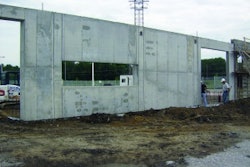
The state must cut nearly $1 billion out of an already austere transportation budget by the end of the year, further delaying critical road improvements - some of which would substantially relieve traffic congestion.
Over the past couple of years, major projects have been dropped - because of shrinking revenue - from the state's six-year road building plan. Dropped projects includ e the widening of Interstate 64 both in South Hampton Roads and on the Peninsula and improvements to the Interstate 64/264 interchange.
Now, with the latest reductions, officials warn that the blow will be felt for many years beyond what the state's spreadsheets show.
Obviously, fewer roads will be built. But in addition, fewer roads will be planned and designed. That means that if or when funding is restored, projects won't be ready to go.
Prep work such as engineering, design and environmental analysis will need to be started or in some cases dusted off and updated before the first dime can be spent on any construction.
About 1.6 million people live in Hampton Roads, which hasn't seen any major new transportation projects in more than a decade.
"It's sort of a self-fulfilling prophecy on a number of fronts," said Dwight Farmer, Hampton Roads Transportation Planning Organization executive director. "If you cut back on critically important preliminary engineering or planning work, and if there comes a day when competitive funds become available, then you cannot be competitive."
Over the past two years, the state's six-year road building budget has been slashed from $8.7 billion to $5.5 billion.
State revenue ha s continued to lag, and now the Virginia Department of Transportation must cut the six-year plan by $743 million more in December, according to the latest estimates. And $134 million needs to be trimmed from the agency's operating budget .
The Commonwealth Transportation Board will start discussing the cuts at its monthly meeting this week. A statewide public hearing has been set for 6 p.m. Dec. 1 at VDOT's headquarters, 1221 E. Broad St. in Richmond.
There may be future rounds of federal economic stimulus money that states could compete for while their transportation funds are limited. But only projects that are "shovel ready" qualify for the current round of stimulus money that was set aside to quickly create jobs and jump-start the economy.
Local officials worry that the state and region won't be in a position to win such money in the future.
"We're between a rock and a hard place here," Farmer said. "We don't want to be wasteful with the public's money and sit plans on the shelf. But we need to be forward-thinking and have projects ready for when money becomes available."
Chesapeake's city engineer, Earl Sorey, said city leaders will have to further prioritize needs. "We'll have to make the hard decision which projects move forward and which don't," he said.
"We have these great plans and great visions and we have no way to implement them. ... We already have designs sitting on the shelf waiting to go," said Mark Schnaufer, Virginia Beach transportation planning coordinator .
Already, several high profile interstate projects have been eliminated from the state's six-year plan. They include widening I-64 from Battlefield Boulevard to Bowers Hill in South Hampton Roads, and from Jefferson Avenue on the Peninsula to Richmond; widening the High-Rise Bridge in Chesapeake; improving the I-64/264 interchange in Norfolk and Virginia Beach; and improving the I-264 interchange at Rosemont and Witchduck roads in Virginia Beach.
Two bridges in South Hampton Roads have closed in recent years because there was no money to fix them - the Kings Highway Bridge in Suffolk and the Jordan Bridge in Chesapeake.
When money does materialize, local officials said, it will be tough getting projects back on schedule.
"New needs will come up, so the line for funding will get a lot longer, putting more pressure on the system," Farmer said.
Major highway improvements already take 10 years from the time they're conceived to the time they open - even in the best-case scenario, he said. The planning usually begins before congestion is severe.
Now, projects are taking 12 to 15 years and road s are severely congested before the work is complete, Farmer said.
He said he worries that those timetables could stretch even longer given the current economic realities.
"This is all new territory for the commonwealth and the region. I've never seen anything like this."
Schnaufer said, "Ten years from now, we're going to look back on this period and say, 'What were we thinking? Why didn't we have a long-range funding plan?'\"
Debbie Messina, (757) 446-2588, [email protected] stop
the work aheadThe state's six-year road building budget has been slashed from $8.7 billion to $5.5 billion over the past two years. And now, $743 million more must be cut in December.
the effect
Planners say the state will be in a poor position to compete for road funding unless it has plans ready to go.


















